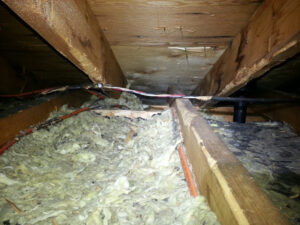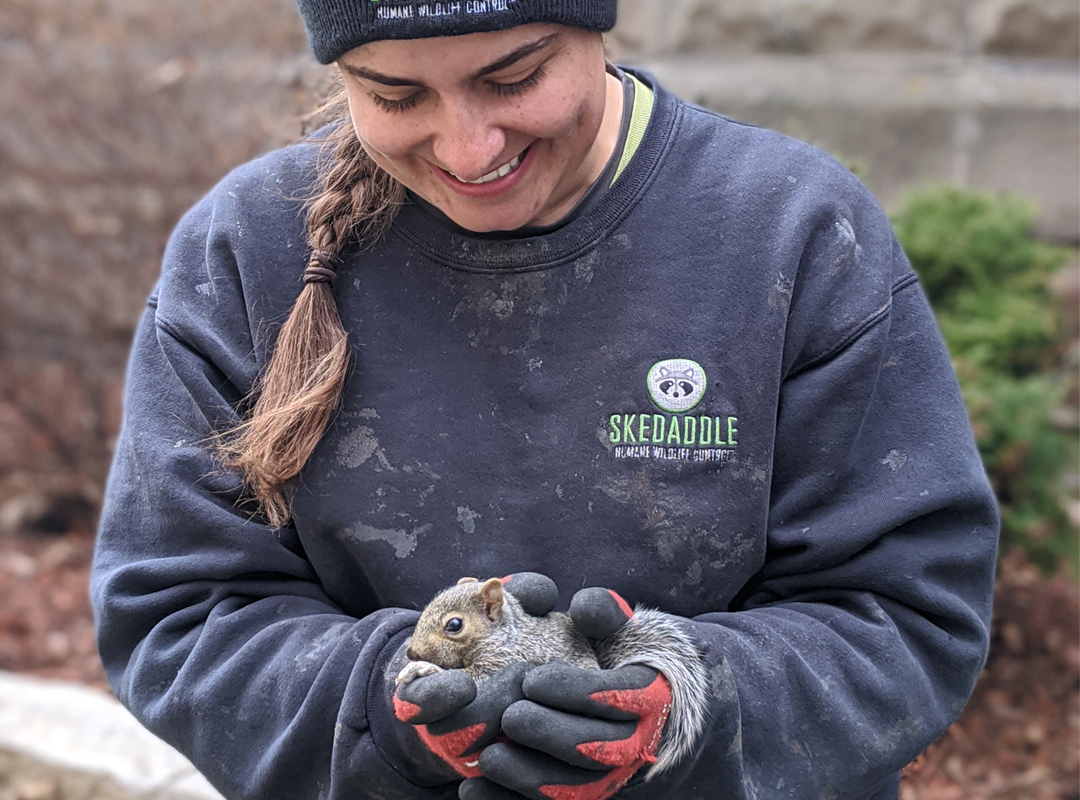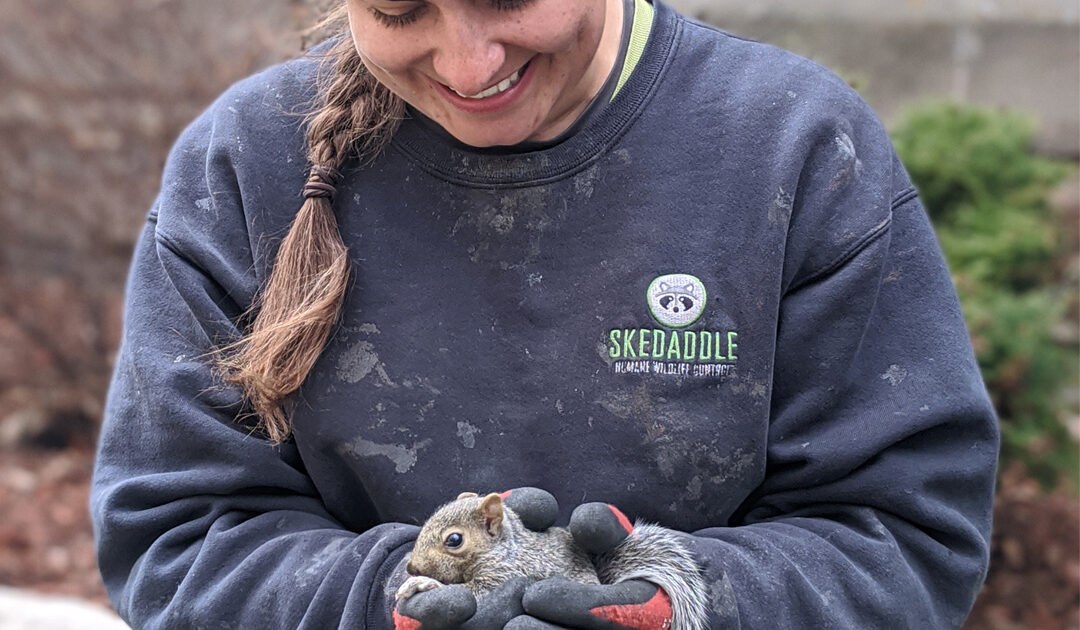Do you ever hear a distinct scurrying within your walls or notice strange damage to your home’s wiring?
Yes, it can be unsettling, and you might find yourself scratching your head as to the cause. Well, hold tight, Minneapolis homeowners, because it may very well be the work of wreaking havoc on squirrels. This sneaky little critter can often be the culprit behind electrical issues in your home due to their constant gnawing instincts that can’t resist the allure of biting through your home’s electrical wires. Beyond this potentially shocking revelation, an unseen squirrel infestation can blight other aspects of your home life, prompting the urgent need for professional intervention.
Homeowners must be equipped with knowledge regarding the impact of such infestations, recognize the telltale signs, and understand how to take swift action that ensures the safety of their homes.
Through this guide, we’ll arm you with protective methods to ward off such furry electrical damage and discuss the role of our Skedaddle wildlife control technician in helping manage and even prevent squirrel infestations.
Let’s embark on this informational journey and help safeguard your home from these furry potential fire-starters.
What are the Common Signs of a Squirrel Infestation?
When squirrel removal becomes necessary, you’ll likely see several telltale signs that indicate a dwelling of these energetic creatures residing in your home. Scratching or scurrying sounds in your attic or walls, particularly in the early morning or late afternoon, are often the first signs homeowners notice.
However, the evidence doesn’t stop there. In addition to unusual noises, you may find:
- Chewed electrical wires: Squirrels have robust teeth that never stop growing. To keep them in check, they constantly need to chew on something, like your home’s electrical wiring, leading to potential shortages and fires. This puts your property at risk and endangers the lives of the home’s occupants, creating a serious safety concern that requires immediate attention.
- Nest materials: If you begin to notice twigs, leaves, and other materials in unexpected places like your loft or basement, it could be a sign of a squirrel nest. This accumulation of nest materials not only poses an electrical fire hazard but could also lead to structural damage over time due to the weight and persistent activity of the squirrels.
- Damage to your home’s exterior: Squirrels will chew on exterior wood and even metal to gain access to your house. This constant gnawing not only damages your home, but it can also pave the way for more serious issues like water leaks and structural damage.
- Foul odors: Over time, squirrel droppings or urine in your insulation can cause a strong, unpleasant smell. This reek can permeate your home, making it an uncomfortable environment to live in.
These signs indicate not only the presence of squirrels but also demonstrate the damage they can cause to your property, creating a serious hazard if not dealt with promptly.
How Can Squirrels Cause Electrical Problems in Residential Settings?
Squirrels pose a serious threat to homeowners due to their gnawing habit. One of the grave concerns is the damage they cause to electrical wiring – an issue that’s not just costly to fix, but poses a major safety risk as well.
Why would a squirrel chew on electrical wires, you may wonder. The answer lies in their continuously growing incisors. To keep these teeth in check, squirrels must constantly gnaw on substances harder than their teeth, and unfortunately, the plastic casing around wires often becomes a prime target.
The Consequences of Chewed Electrical Wires
When a squirrel chews through electrical wires, it exposes the metal conductors within. This exposes your home to a variety of risks, including:
- Electrical Short Circuits: Exposed wires can lead to short circuits, posing potential fire hazards. In severe instances, these short circuits may cause extensive damage to your home’s electrical system and require cost-heavy repairs. Furthermore, the consequential fires can devastate your property and put your family’s safety at risk.
- Power Outages: Chewed cables can disrupt the power supply, resulting in unexpected blackouts. These electrical issues cause inconvenience and can potentially damage other appliances in your home that rely on stable power. It’s vital to address such issues promptly, not just for your comfort but also to avoid potential hazards, such as fires, which could present significant risks for your household.
- Equipment Damage: Home appliances and other electronic devices can suffer from intermittent power supply caused by damaged wires. When your electronic devices are not getting the steady flow of electricity they need, it can lead to premature wear and breakdowns. Over time, the cost of replacing these items can add up, causing a significant financial burden.
Moreover, the repair or replacement of chewed electrical wires can be a costly process, which may also cause significant inconvenience as vital household systems go offline.
What Steps Can Homeowners Take to Protect Their Homes and Electrical Wires from Squirrels?
If you’ve identified signs of squirrel infestation, your next step should be pre-emptive action to prevent any further damage to your home’s electrical system. Want to know how to protect your home from wildlife? Here, we outline a few simple steps you can take:
- Tree Trimming: Reducing the number of branches that hang close to your home can limit squirrel access. Squirrels use these as pathways to enter your dwelling. Furthermore, trimming trees can prevent squirrels from gnawing on the branches, deterring them from your property entirely. It’s a simple but effective precautionary measure to protect your home from potential squirrel infestations.
- Sealing Entrances: Check your home for any possible entry points such as attic vents, chimney caps, gaps in the roof or siding, and foundational crevices. A good rule of thumb is to seal any hole larger than 1 inch in diameter. Sealing these points of entry will make it difficult for squirrels to get inside your home. Additionally, by doing regular inspections and maintenance, you can prevent any future infestations and keep your home safe.
- Protect Your Electrical Wires: Using rodent-proof materials like metal conduit can save your wires from being chewed. Implementing this protective measure not only ensures the longevity of your home’s electrical systems but can also prevent potential fire hazards caused by exposed wires. Furthermore, it’s a proactive step towards creating a safer environment for your family, minimizing the risk of electrical malfunctions or shortages due to wildlife interference.
- Removal of Food Sources: Squirrels are attracted to gardens or bird feeders. By removing these, you can help make your property less attractive. Additionally, avoid leaving pet food outside as it might attract these agile creatures. Ensure your garbage bins are securely closed to prevent them from scouring for meals.
While these are helpful first steps, it’s essential to remember that dealing with squirrels can be risky. They are known to scratch or bite when cornered, potentially spreading diseases. Furthermore, the process can be time-consuming and require professional equipment and techniques not commonly available to most homeowners.

How Does a Wildlife Control Technician Help in Controlling a Squirrel Infestation?
For most homeowners, recognizing and managing a squirrel infestation can be both challenging and stressful. Wildlife control technicians from our company make this task a breeze for residents. They use scientific knowledge and vast field experience to diagnose and tackle your squirrel problems effectively.
Initial Inspection: Our technicians begin by conducting a thorough inspection of your property. They identify entry points, signs of infestation such as chewed electrical wires, and potential squirrel nests. This detailed analysis helps us understand the severity of the infestation and plan an appropriate course of action.
Humane Removal: We use humane techniques to guide squirrels out of homes. Our approach not only ensures that the squirrels aren’t harmed but also minimizes stress for homeowners. Depending on the infestation’s dynamics, traps, one-way doors, and deterrents may be used. Eviction fluid, a unique blend of natural squirrel scents, can be used to stimulate a natural evacuation.
Prevention Measures: Once all squirrels are removed, we make efforts to prevent future infestations. This includes securing access points used by squirrels and recommending changes in the environment around your property to make it less attractive to squirrels. We use methods that deter squirrels without causing harm, reducing the likelihood they’ll seek to return to your property.
Continuous Monitoring: Our work doesn’t end with the removal of squirrels from your property. We continue to monitor your property for a period of time to ensure the effectiveness of our prevention strategies and make necessary adjustments if needed. Such consistent surveillance greatly minimizes any chance of a re-infestation, ensuring your home remains a squirrel-free zone. This thorough approach significantly reduces the risk of further electrical damage, contributing to your home’s safety and comfort.
In the end, calling a wildlife control technician for squirrel removal becomes the ideal, hassle-free solution. Our experts take care of the situation, letting you enjoy peace of mind in your squirrel-free home.
Trust the Experts at Our Wildlife Control in Minneapolis
To ensure they’re properly handled, rely on our wildlife control technicians. Our team will not only help you remove the furry invaders humanely but also provide professional guidance on preventing future infestations.
We at Skedaddle specialize in humane squirrel removal in Minneapolis, ensuring your home and its electrical system are safe from the damaging effects of infestations. Our experts are trained to handle situations safely and can provide tips on protecting your home from wildlife in the future.
Protect your home from uninvited guests and potential fire hazards. Don’t wait till you see chewed electrical wires. Contact us to request a quote and learn more about what we can do for you.




